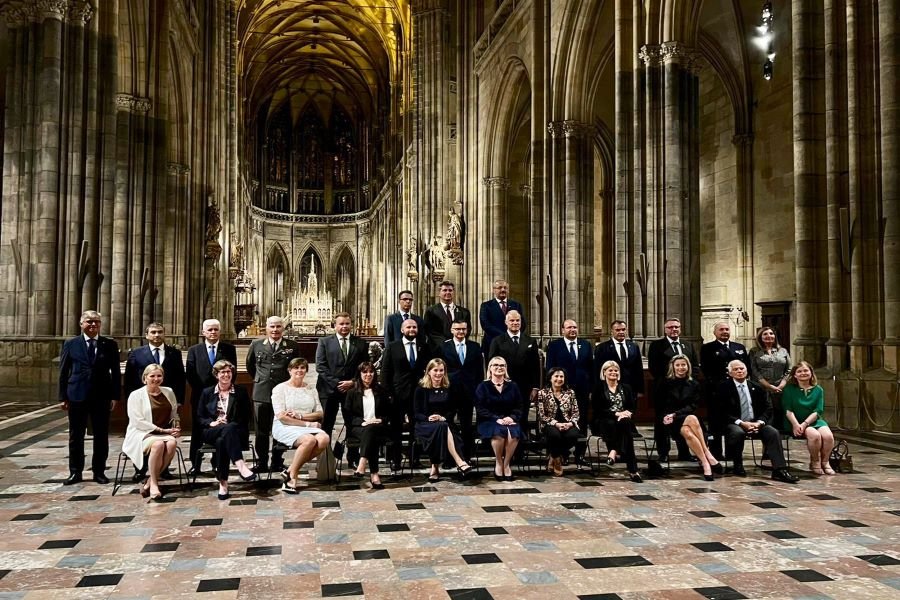Prague, 30 August 2022 (TDI): European Union (EU) Defence Ministers held a two-day meeting, on 29-30 August, in Prague. During the meeting, Defense Ministers held discussions on the most urgent EU security and defense matters, starting with the latest developments in the situation in Ukraine.
V Praze začalo první setkání ministrů obrany členských zemí Evropské unie od chvíle, co Česká republika převzala předsednictví v Radě 🇪🇺. Dvoudenní program byl dnes zahájen společnou večeří na Pražském hradě. Samotné jednání proběhne zítra v Kongresovém centru.#CZPRES 🇨🇿🇪🇺 pic.twitter.com/bqzCFVn4VN
— Ministerstvo obrany (@ObranaTweetuje) August 29, 2022
The main agenda of the discussion was the Russian intervention in Ukraine and its impact on EU member states. Moreover, Defence Ministers also discussed the aid that the EU provided to Ukraine and the future of the European Union’s exercises in Mali.
Further, the EU Defense Ministers focused on the need to set up a military training program for Ukrainian soldiers against Russian forces. Military training will provide more support to Ukraine.
The Defence Ministers also discussed crimes committed against prisoners of war and the ongoing indiscriminate bombing of Ukraine civilians. They also stressed that the nuclear gaming at the nuclear power plant in Zaporizhzhia is highly dangerous.
Moreover, Josep Borrell, the High Representative of the EU for Foreign Affairs and Security Policy also attended the meeting. He emphasized that “Ukraine needs our support, and we will continue providing this support.”
EU assistance to Ukraine
Since the start of Russia’s intervention in Ukraine, the EU has sent a total of €2.5 billion ($2.5 billion) of military assistance to Ukraine. It included lethal weaponry, personal protection equipment, first aid kits, and gasoline.
Additionally, the EU has also imposed sanctions and excluded Russian and Belarusian institutions from the SWIFT global banking system. The EU remains steadfast in its commitment to helping Ukraine in its struggle for freedom and independence.
EU and Ukraine relations
Ukraine proclaimed its independence from the Soviet Union in 1991. Ukraine signed a Partnership and Cooperation Agreement with the EU in 1994.
The agreement guarantees shared values such as human rights, democracy, and a market economy and establish the potential of a future free trade area.
Moreover, a Ukraine-EU Association Agreement has also been in effect since 2017. The Agreement established new economic linkages between Ukraine and the EU.
The Agreement also assisted Ukraine in integrating with the EU in political, economic, and legal sectors. With 40% of Ukraine’s total trade in 2019 and a value of €43.3 billion, the EU is the country’s greatest trading partner.
Student of BS International Relations in Kinnaird College for Women. Currently, working in 'TDI' as a contributor.








